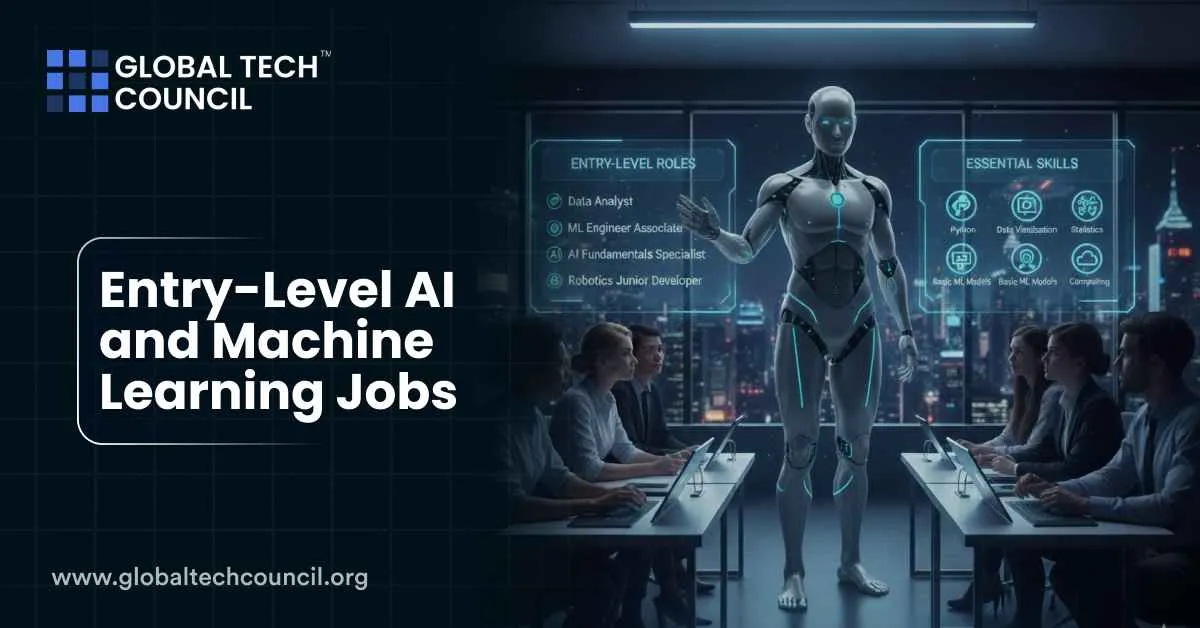
The Current State of Entry-Level AI Hiring
Entry-level job openings in the tech sector have dropped by more than half compared to pre-pandemic levels. Many organizations have shifted toward hiring experienced professionals who can contribute immediately, leaving fresh graduates at a disadvantage. According to industry analysts, this change is driven not just by AI automation but also by a broader skills mismatch in the job market.
Goldman Sachs has cautioned that Gen Z tech workers are among the first to see their entry-level opportunities reduced due to AI taking over repetitive and foundational tasks. Despite this, hiring in AI and machine learning remains strong overall, with job postings growing compared to last year.
Emerging Roles for Newcomers
While some traditional junior developer and analyst positions are declining, new AI-related roles are emerging at the entry level. Titles such as AI ethics specialist, prompt engineers, junior AI programmer, entry-level data scientist, and AI support specialist are now appearing on job boards.
The rise of skill-based hiring means employers increasingly value demonstrable abilities over formal degrees. Completing an artificial intelligence course for beginners can help you gain the practical knowledge and project experience employers are looking for.
Common Entry-Level AI and ML Roles in 2025
| Role Title | Typical Salary Range | Key Skills Required |
| AI Intern | $47K – $59K | Python, basic ML models, data preprocessing |
| Entry-Level Data Scientist | $81K – $102K | Statistics, SQL, visualization tools |
| Prompt Engineer | $60K – $80K | NLP, prompt optimization, creativity |
| AI Ethics Specialist | $70K – $90K | Governance, bias detection, compliance |
| Junior ML Engineer | $61K – $85K | TensorFlow, PyTorch, supervised learning |
Salary Expectations and Remote Opportunities
Entry-level salaries in AI and machine learning vary widely based on the role, industry, and location. For example:
- Junior software engineering: $59K–$78K
- Entry-level data scientist: $81K–$102K
- AI programmer: $48K–$59K
- AI project manager: $70K–$90K
Some remote AI positions for beginners offer salaries starting at $72,000, while niche jobs like “Text Dataset Specialist” can reach as high as $120,000. Completing structured learning paths such as Data Science Certification can significantly improve your earning potential.
Skills That Improve Your Hiring Chances
To secure an entry-level AI job in today’s market, candidates need a combination of technical and soft skills. Employers value strong programming abilities, familiarity with machine learning algorithms, and an understanding of AI ethics and governance.
Structured AI certificate programs are a great way to gain credibility, providing hands-on training and industry-relevant projects that make your portfolio stand out.
High-Impact Skills for Entry-Level AI Careers
| Skill Area | Why It Matters | Example Tools/Technologies |
| Programming Fundamentals | Core for all AI and ML roles | Python, R, Java |
| Data Handling | Enables preprocessing and feature extraction | Pandas, SQL |
| Machine Learning Basics | Builds model development competency | Scikit-learn, TensorFlow |
| Communication Skills | Helps convey technical results effectively | Data storytelling, presentations |
Overcoming Challenges in Entry-Level AI Hiring
While competition is fierce, the growing demand for AI skills across industries still creates opportunities for newcomers. Employers are also increasingly open to hiring candidates from non-traditional backgrounds if they can show real-world project work. Enrolling in a machine learning course can bridge the gap between academic theory and workplace requirements.
Those aiming for career progression can explore specialized technical tracks to deepen their expertise. For instance, a Deep tech certification from the Blockchain Council can prepare you for advanced roles in AI architecture and deployment.
If your career goals lean toward leadership or business-focused AI projects, a Marketing and Business Certification can help you apply AI insights to growth strategy, market analysis, and organizational decision-making.
Conclusion
Entry-level AI and machine learning jobs may be harder to find in 2025, but they are far from disappearing. The key is to adapt to the market by gaining in-demand skills, completing recognized certifications, and targeting industries that continue to expand their AI capabilities. With the right preparation, you can still build a solid foundation for a successful career in this evolving field.
Leave a Reply